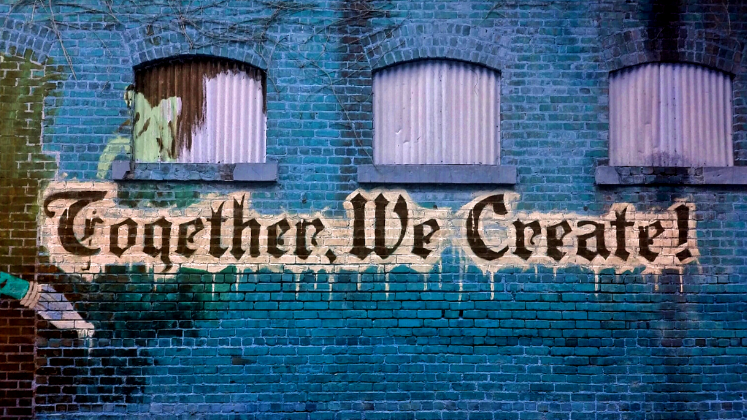 Knowledge exchange is a process often discussed in vague detail in relation to research impact. Chris Cvitanovic looks at the available exchange mechanisms for marine scientists and decision-makers. Survey findings suggest that while engaging with decision-makers was important to scientists on a personal level, a range of barriers prevent this from happening. Formal recognition of engagement activities and dedicated funding and resources are necessary to overcome these barriers.
Knowledge exchange is a process often discussed in vague detail in relation to research impact. Chris Cvitanovic looks at the available exchange mechanisms for marine scientists and decision-makers. Survey findings suggest that while engaging with decision-makers was important to scientists on a personal level, a range of barriers prevent this from happening. Formal recognition of engagement activities and dedicated funding and resources are necessary to overcome these barriers.
The growing urgency and complexity of sustainability problems, from climate change and biodiversity loss to poverty and inequality, present a significant threat to many societies. Often described as wicked problems, these issues are characterised by high levels of uncertainty, contested values and political and administrative uncertainty. As a result there are renewed calls for improved strategies that enhance knowledge exchange among scientists and decision-makers to facilitate evidence-based decision-making. This exchange of knowledge, however, remains a significant challenge across disciplines and sectors. Here, I provide an overview of progress in the field of knowledge exchange, using the sustainable management of marine resources as a case study.
What is knowledge exchange?
Understanding the relationship between knowledge and decision-making is not new, but rather a long-standing question of academic interest with deep roots in philosophy. In the past 15 years, however, this relationship has become increasingly prominent in the scientific literature in recognition of the need to converge diverse but complementary disciplinary approaches and views in response to complex problems across a wide range of sectors such as health, education, business and environmental management. A by-product of this proliferation is that multiple definitions of knowledge exchange now exist, although all recognise that knowledge exchange describes the interchange of knowledge between research users and “scientific” producers. When done effectively, knowledge exchange is increasingly recognised as a key factor facilitating the social, environmental and economic impacts of scientific research.
 Image credit: Fancycrave1, Pixabay (CC0)
Image credit: Fancycrave1, Pixabay (CC0)
Barriers to knowledge exchange
Throughout the knowledge exchange literature, conventional approaches to knowledge exchange (i.e.- linear pipeline models of communication) and cultural differences between scientists and decision-makers have been well established as key factors undermining effective knowledge exchange among the two groups. More recently, however, a new suite of evidence suggests that a range of other barriers also exist, and in some cases, compound and reinforce existing issues.
For example, in relation to marine resource management institutional (dis-) incentives and structures can reinforce cultural differences. A recent survey of 78 marine scientists from 19 individual research organisations found that while engaging with decision-makers was important to scientists on a personal level, a range of institutional barriers prevent this from happening. These included inadequate measures of science impact that do not account for engagement activities, a lack of organisational support for engagement activities, insufficient time to conduct engagement activities in addition to other responsibilities and a lack of funding to support engagement activities. Similarly, marine decision-makers also face a range of institutional barriers that prevent knowledge exchange activities from occurring, as well as leading them to feel dis-empowered to act or take action.
A number of structural impediments related to science in-accessibility have also been documented and suggested as a key barrier preventing knowledge exchange among scientists and decision-makers. For example, a recent review of 222 published scientific papers across a four year period in relation to marine protected areas management found that it takes more than three years for scientific articles to be published following data collection, and as such, information may be out of date and less useful to decision-makers by the time it is made available. Furthermore, over half of this scientific literature was not freely available to decision-makers, due to scientific journals requiring subscription to access the contents. Even when scientific literature was freely available to decision-makers, only 19% of scientific articles provided clear outcomes or recommendations that were considered relevant to decision-makers. In combination, these impediments highlight the inaccessibility of scientific information to decision-makers as a key factor undermining the integration of science into the decision-making process.
While this list of barriers is not exhaustive (but see Cvitanovic et al, 2015) they serve to illustrate some of the key institutional barriers undermining knowledge exchange among scientists and decision-makers. In recognition of the need to overcome the barriers described above, new research has begun to identify the enabling conditions needed to complement existing efforts to improve knowledge exchange. Specifically, these studies have identified the need for institutional innovation by research institutions, research funders and decision-making agencies alike, to promote a culture whereby knowledge exchange activities are legitimised as core business and recognised and rewarded appropriately (summarised in Fig 1).
Figure 1. A conceptual diagram illustrating the ways in which knowledge exchange among marine scientists and decision-makers can be enhanced through a range of institutional innovations.
This representation is based on resilience thinking, in which stability is represented by the pits containing the scientist and decision maker balls, and the peak between these stable (but undesirable states) represents the barriers (as published in Cvitanovic et al, 2015).
For research organisations, this should include formally recognising engagement and communication activities as a core component of a scientist’s role, and thus supporting these activities with both dedicated funding, time allocations or other resources (e.g.- access to a knowledge broker). In turn, scientists should be rewarded for engagement and outreach activities alongside traditional metrics of science impact such as peer-reviewed publications. Research institutions should also establish formal mentoring programs to help develop engagement and communication skills in early career scientists.
For research funders, institutional innovation should include the establishment of new criteria for awarding research funding that include measures of stakeholder engagement, and the provision of dedicated funding to solely support stakeholder engagement activities. Research funders could also fund the development of open-access systematic reviews, through a similar model to the Cochrane Collaboration in medicine, to complement alternate efforts to improve knowledge exchange.
Finally, institutional innovations are also needed by decision-making agencies, to allow staff to move beyond their typical focus on day-to-day operation, and allow long-term strategic reflection on future research and development priorities, which can then be communicated to scientists to help guide the development of future funding and research proposals. Decision-making agencies should also provide their staff with the flexibility and resources to participate in knowledge exchange activities, such as specific projects to facilitate knowledge co-production.
Concluding remarks
Based on my own experience over the past decade, working both as a decision-maker in senior levels of government and then as a scientist, I appreciate the difficulty in implementing the institutional change and innovations describe above. Indeed, many if not all are large in scale and potentially costly. Doing so, however, is critical if science is to successfully fulfil its social contract and support decision-makers in managing the threats and challenges facing humanity.
Note: This article gives the views of the author, and not the position of the Impact of Social Science blog, nor of the London School of Economics. Please review our Comments Policy if you have any concerns on posting a comment below.
Dr Chris Cvitanovic is a social scientist with CSIROs Oceans and Atmosphere Flagship , where he works on identifying and overcoming the barriers to knowledge exchange among science and decision-making. Prior to joining CSIRO in 2013 Chris worked in the executive levels of the Australian Government Environment Portfolio where he delivered a range of policies and programs concerned with protecting Australia’s marine environment. Through this work Chris developed a strong working knowledge of the barriers that prevent the integration of knowledge into decision-making processes, which led him to pursue his current research on the relationship between knowledge systems and adaptive governance.








